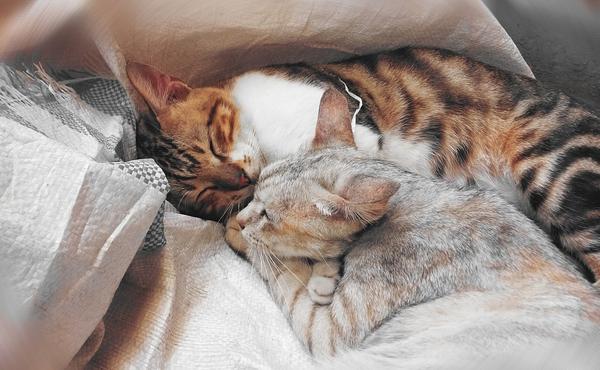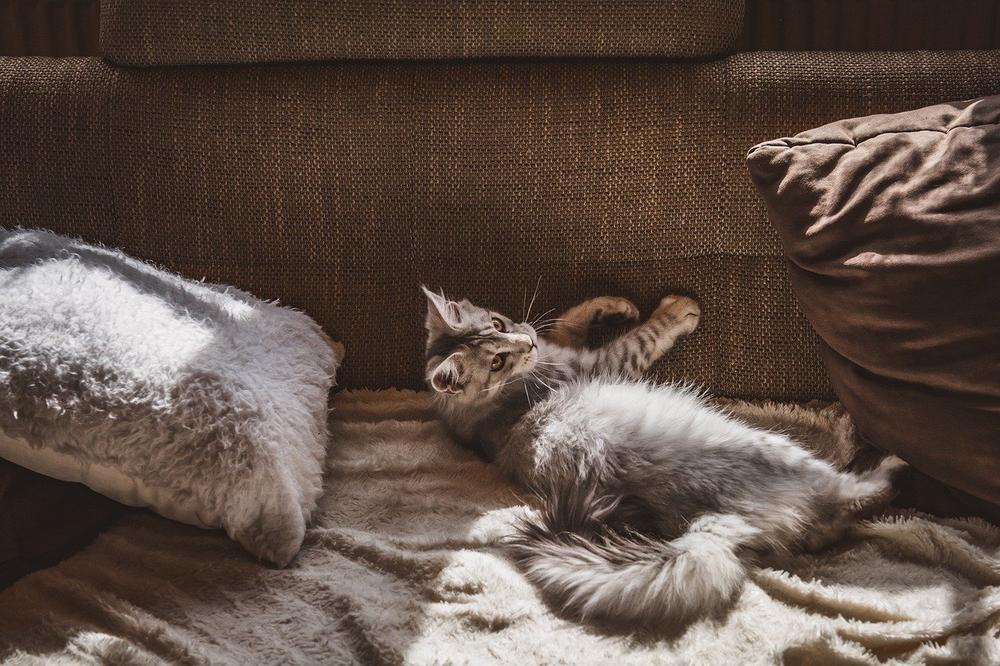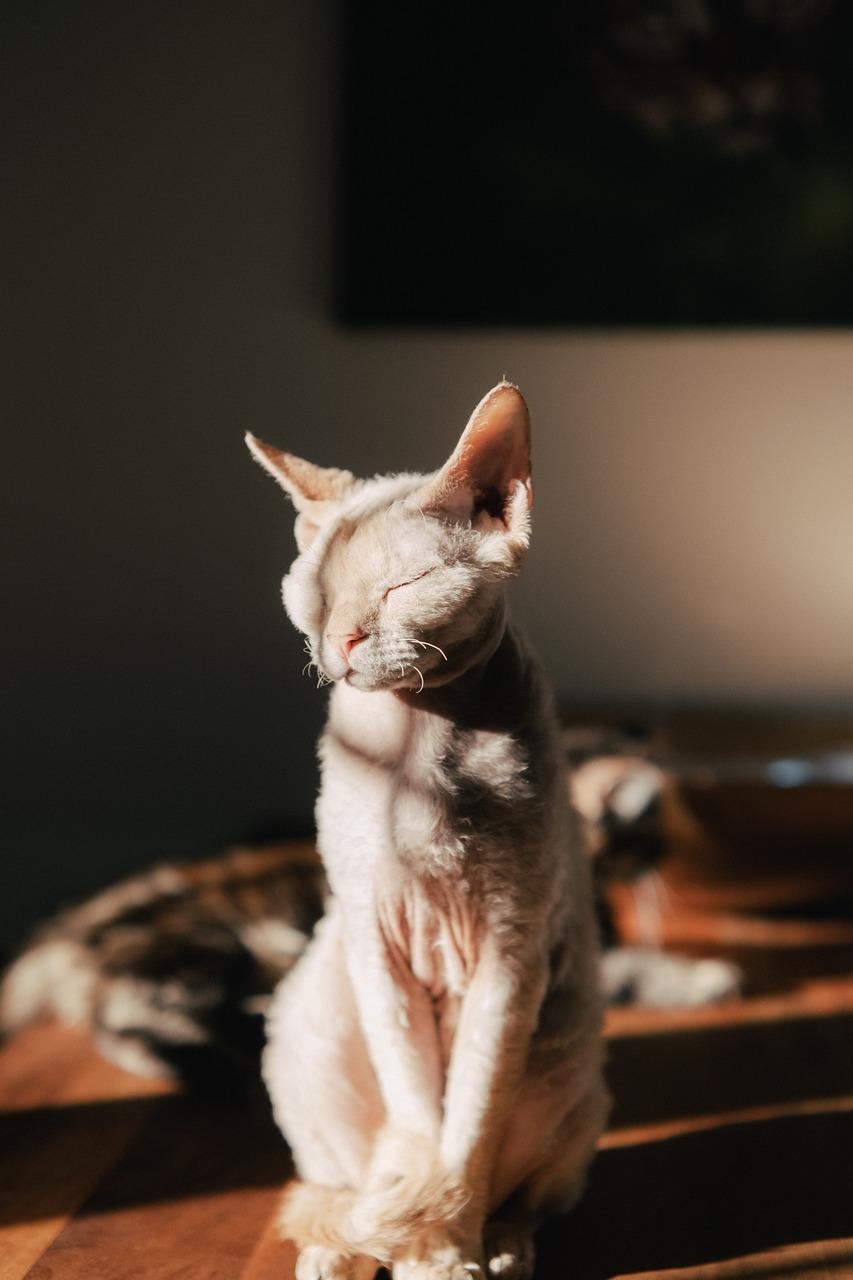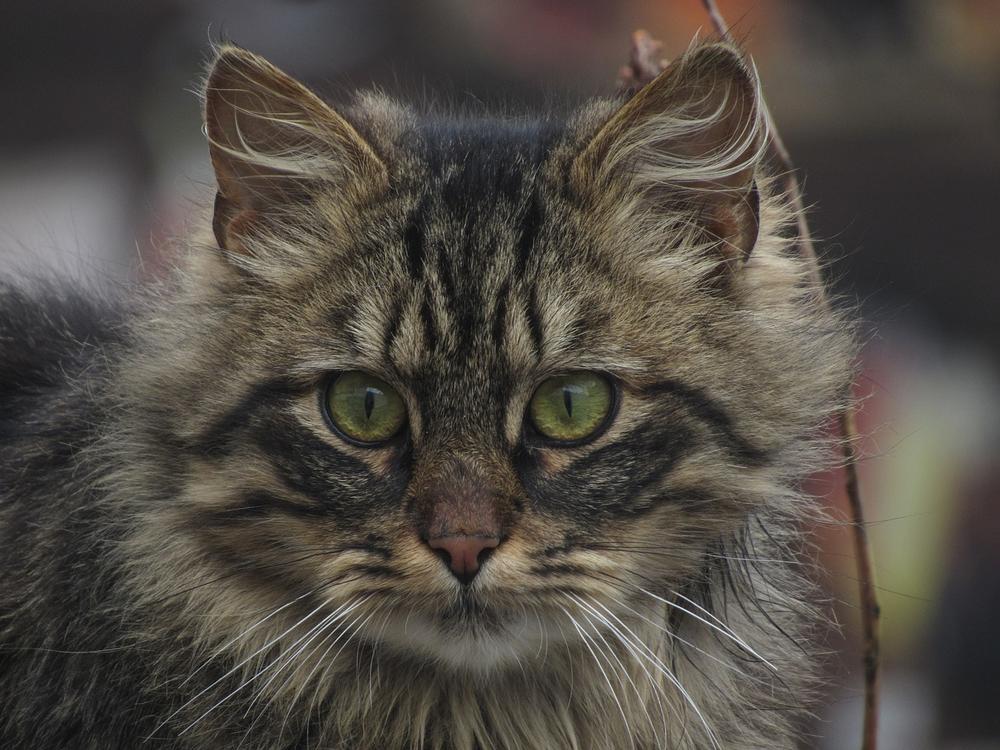Do Cats Like Snow or Do They HATE It? (The Truth Revealed)

Are you curious if cats are snow enthusiasts?
Do you ever wonder about what cats really think when they encounter that fluffy white stuff?
Well, today we're going to dive deep into feline behavior in wintry wonderland. ❄
Let the adventure begin!
Do Cats Like Snow?
While most cats aren't fond of snow due to their preference for hot, dry environments, breeds like Norwegian Forest Cats or Siberian Forest Cats with thicker fur may enjoy playing in the snow. However, you need to prioritize your cat's comfort and safety.
Do cats like snow?
Well, it's not that simple.
Most cats really aren't into it.
They're more accustomed to hot, dry environments since they come from desert regions.
Snowy landscapes just aren't their thing.
But there are exceptions.
Take breeds like Norwegian Forest Cats or Siberian Forest Cats, for example.
Their thicker fur keeps them warm in frigid temperatures, so they might actually enjoy playing in the snow!
However, we can't ignore the fact that snow can be wet and cold.
So most cats prefer staying cozy indoors when it snows outside.
And who can blame them?

I mean, would you rather freeze your paws off in snow or snuggle up by a fireplace with a warm blanket?
Exactly. 😺
But hey, there are some adventurous cats out there.
For them, playing in the snow is like having interactive toys!
So if your furry friend frolics in the white fluffy flakes, let them have their fun.
Every cat is different.
Some may develop a taste for snow if introduced to it gradually as kittens.
Others may never warm up to it at all.
Either way, always prioritize your cat's comfort and safety!
But hey, if you're curious about whether cats like rain and where they go when it's pouring, I've got the perfect resource for you.
In my article, "Do Cats Like Rain", I explore everything you need to know about our feline friends and their relationship with rainy weather.
So, if you want to satisfy your inquisitiveness, be sure to give it a read.
Cats and Snow: A Relation Between Hate and Love
Cats and snow...
Complicated, right?
But there's exceptions:
- Maine Coon and Norwegian Forest Cat breeds, they might actually enjoy it.
- If your cat wants to play in the snow, keep an eye on them and give them shelter if needed.
- Curiosity is key for cats with snow, their experiences and where they live shapes their interest.
- Snow beats rain for cats, doesn't soak their fur as much.
- After a snow escapade, make sure you clean their paws well to get rid of any ice or salt.
- Older cats with stiff joints need extra resting spots and paths so they can handle snowy areas.
When it comes to snow, consider what your own cat likes, its personality, and health.
Just always put their safety and wellbeing first!
Not all cats despise snow.
They've got their own snow-loving charm!
Listen closely, because this is the secret sauce: The snow-loving charm of cats doesn't end here! There's more coming up, particularly about indoor cats and snow. So keep reading to discover how they react when winter wonderland makes its way indoors.
But what if your cat is not a fan of the snow?
Don't worry, there are still ways to keep them warm and cozy during those chilly winter days!
Here's what you need to know...
How Cold Is Too Cold for My Cat?
Watch your cat's body language in cold weather to see if they are uncomfortable.
Signs like shivering or searching for warm spots may indicate that they feel the chill.

Use thick plastic bowls to keep water from freezing, helping to keep your furry friend hydrated. Additionally, provide cozy bedding away from drafts for your cat to snuggle up in.
Following these straightforward measures will guarantee that your cat remains content and warm as temperatures drop during the winter months.
Keep an eye out for discomfort and create a comfortable environment for your feline companion.
Hypothermia in Cats
Hypothermia in cats is a serious condition that requires immediate attention.

Here are some tips to help your feline friend:
- Avoid direct heat sources: While it's important to warm up your cat, make sure they aren't exposed to direct heat sources like radiators or hot water bottles. This can lead to overheating and burns.
- Never use a hair dryer: The strong, hot air from a hair dryer can be too intense for cats' sensitive skin. Stick to using towels or blankets to warm them up gently.
- Monitor body temperature: Use a digital thermometer to monitor your cat's body temperature. A normal range for cats is between 100.5°F and 102.5°F.
- Wrap in warmed towels or blankets: To raise your cat's body temperature gradually, wrap them in warm towels or blankets. Be careful not to overbundle and restrict their movement.
- Consider a heating pad: If your cat is showing signs of hypothermia regularly, consult with your veterinarian about using a heating pad designed for pets. Follow their instructions carefully to ensure safety.
- Offer warm food and water: Warm food and water can help raise your cat's internal body temperature. Serve at room temperature or slightly warmed.
- Keep an eye out for other symptoms: Hypothermia can cause lethargy, weak pulse, dilated pupils, and difficulty breathing. If you notice any of these symptoms, seek veterinary care immediately.
It's better to take precautions and keep your furry friend warm than to deal with the consequences of hypothermia.
Stay vigilant! ✨
Indoor Cats and Snow
| Snow Behavior | Description |
|---|---|
| Curiosity | Some indoor cats might become curious about snow and want to explore it. |
| Reluctance | Most indoor cats are reluctant to go outside in the snow due to the cold and wet conditions. |
| Observation | Cats may enjoy watching the snowfall from the warmth and safety of a perch near a window. |
| Safe Shelter | Providing a wooden box or shed with a blanket and water can offer a safe haven for cats to seek shelter from the cold weather. |
| Checking Flaps | Regularly checking cat flaps and removing snow and ice ensures that cats have easy access to the indoors and stay safe in inclement weather. |
| Breed Variations | Certain cat breeds, like Maine Coons and Norwegian Forest Cats, are more adapted to cold temperatures and may be more comfortable in the snow. |
Do you ever wonder if indoor cats enjoy playing in the snow?
It's a bit of an odd mix, isn't it?
But let me give you some clear answers.
If you have an indoor cat who loves spying on those outdoor activities, why not create a special spot for them near a window overlooking the snowy scene?
They can still enjoy the beauty of the snow while cozying up inside their warm home.
How luxurious is that!
Most indoor cats actually prefer to stay indoors and avoid the snow altogether.
Let's be honest here, they're used to being in warm and dry environments.
Snow, well, it's just not their thing.
It's cold and wet, and let's face it, cats aren't usually fans of that.
But like everything, there are exceptions. Some cat breeds like Siberians or British Shorthairs are better equipped to handle the cold temperatures.
They're like the ninjas of the snow world.
Just imagine your furry friend having a blast and running around in the snow.
That would be quite a sight.
Now, feral cats, those little survivors, they know what they're doing when it comes to the snow.
They'll find a cozy hiding spot and keep warm during the colder times.
Nature has taught them well.
However, you ought to remember that cats are safer indoors.
So, creating a safe haven for them is crucial.
Set up a wooden box or shed with a blanket and water nearby.
Make sure to regularly check the cat flaps because snow and ice might block their access.
And hey, don't forget about radiators.
Cats can overheat if they spend too much time next to them.
Always prioritize safety!
And if you really want to minimize their exposure to snow, encourage more indoor time.
Consider setting up a litter tray so they can do their business without stepping into all that fluffy white stuff outside.
So now that you understand the dynamics, indoor cats and snow aren't exactly the best buddies.
But when it comes to cats and blankets?
Now that's a match made in heaven!
Expand your horizons: If you're curious about whether cats sleep more in hot weather or if it's a myth, you'll definitely want to check out Do Cats Sleep More in Hot Weather. It's an informative and intriguing blog post that dives into this fascinating topic. Trust me, you won't want to miss it!
And it gets worse, because snowy conditions can pose various dangers to outdoor cats.
So, let's talk about the precautions you need to take and the potential risks they face when venturing into the snow...
The Dangers of Snow for Outdoor Cats
When it's snowing heavily, outdoor cats can be in danger.

Here are some things you should do to keep your furry friends safe in the snow:
- Regularly check on your outdoor cats so they don't get trapped or buried by the snow. This could be really dangerous for them.
- Keep your cats inside during snowstorms. The cold can cause frostbite and hypothermia, especially in young or old cats who are more vulnerable to getting sick or injured.
- If your cat insists on going outside, make sure they have a shelter that protects them from the snow and wind. It's important to give them a warm place to stay, especially when it's coldest.
- Watch how long your cats are outside and bring them back in after a short period. This will reduce the chances of them getting sick or hurt from being in the cold too long.
- Make sure they have access to food, water, and a place where they can dry off after being in the snow. Their health depends on staying hydrated and warm during winter.
- Be careful to prevent accidents. Before starting your car, bang on the hood to let any cats hiding there know they need to move. Also, keep antifreeze away from them because it's toxic and can be deadly if ingested.
- Don't forget about identification! Update your cats' information and use ID tags so you can find them if they go missing in the snow.
Cats depend on us to take care of them when the weather gets extreme.
By following these tips, you'll ensure they're safe and well cared for during snowy days.
Final Thoughts on Cats and Snow
Key Takeaways:
- Most cats prefer dry climates and are not fans of snow.
- Certain cat breeds, like Norwegian or Siberian Forest Cats, may enjoy playing in the snow.
- Snow is preferable to rain for cats as it doesn't penetrate their fur as much.
- Supervise cats playing in the snow and provide shelter if needed.
- Cats have varying reactions to snow, with some loving it and others disliking it.
- Clean cats' paws thoroughly after being in the snow.
- Provide extra resting places and routes for older cats with stiff joints in snowy conditions.
- Use thick plastic bowls for water outside to prevent freezing.
- Provide cozy and comfortable bedding for cats to stay warm.
- Kittens, senior cats, and those with chronic diseases are at a higher risk for hypothermia.
- Bring cats indoors if they start shivering in the snow.
- Gradually increase cats' body temperature with warm towels or blankets.
- Make sure cats with cold symptoms have access to warm areas.
- Most indoor cats prefer to stay indoors and avoid the snow.
- Keep outdoor cats indoors for safety during snowy conditions.
And that wraps up today's article.
If you wish to read more of my useful articles, I recommend you check out some of these: Can Cats Find Their Way Home After Rain, Why Do Cats Go Crazy When It Rains, and Do Cats Understand Kisses
Talk soon,
-Sarah Davis